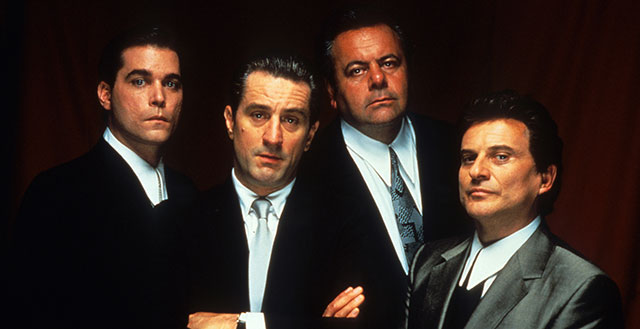
Lay on the Franki Valli and bust out the shine box, because Martin Scorsese's mob masterpiece Goodfellas is headed back to Cineworld.
The searing criminal odyssey is one of the movies we're showing as we prepare to re-open at the end of July. Scroll down to discover why you cannot miss Goodfellas on the big screen.
1. The story
Whereas 1972's The Godfather was about mobsters at the top of the tree, Goodfellas is occupied with those lurking at the roots. Scorsese works with author Nicholas Pileggi to adapt the latter's book Wiseguy, which recounts the astonishing and horrific story of mobster turned informer Henry Hill.
Having been indoctrinated in mob customs, Hill swiftly found himself to be a trusted enforcer. This gave him firsthand access to some of New Jersey's most notorious criminals, and he was eventually involved in the audacious 1960s Lufthansa heist. However, pride comes before the fall, and Hill was ultimately compelled to rat out his former comrades. This meant he had to live out the rest of his life in the witness protection programme.
By virtue of its story, Goodfellas strips away any sense of authority and glamour from its characters. These are backstabbing individuals who are compelling in their unpredictability. And although the mob lifestyle is shown to have a seductive, materialistic edge, Scorsese is always careful to leaven it with violent reminders that these aren't aspirational people.
With its nuanced examination of power struggles and the need to climb the greasy pole, Goodfellas still stands as a near-mythical, archetypal story of what it takes to get ahead in the world. It's just that in this instance, the main characters are deadly criminals.
2. The direction
Saying Goodfellas is well directed is like saying water is wet. Scorsese's signature energy cuts through every frame, beginning with that unforgettable "I always wanted to be a gangster" intro. The direction, with its onslaught of hard edits, crash zooms and steady tracking shots through darkened, smoke-infested bars, appears drunk on the euphoria of the gangster lifestyle. But Scorsese is no empty-headed stylist: the visual approach of the movie is designed to reflect the moral emptiness of the mob lifestyle, regardless of how gaudy or attractive it appears on the surface.
Any number of sequences from Goodfellas have gone down in history. But it's hard to top the extended tracking shot through the kitchen of the Copacabana nightclub as we accompany Henry and his new girlfriend Karen. The enveloping nature of the camerawork embodies the principle of the movie: we're being presented with a lifestyle that's overwhelming yet deeply corrupt.
3. The performances
Without some suitably visceral acting, the movie would be all flash and no impact. However, Goodfellas knocks it out of the park with excellently chosen actors in both the lead and supporting roles. Ray Liotta does a tricky job of acting as our moral compass (in relative terms), conveying the naivety and outsider quality of Henry Hill even as he's compelled to commit appalling acts. Scorsese muse Robert De Niro is subtly menacing as Jimmy Conway and Paul Sorvino does more with Paulie's thousand-yard stare than many could do with a monologue.
Lorraine Branco convinces as Karen, the love of Henry's life who is seduced by the material trappings of the mobster life. Even the small roles are memorable: take Chuck Low as Morrie, the hapless wig seller who gets in over his head when demanding payment from Jimmy for his part in the Lufthansa heist.
Even so, the show is stolen by Raging Bull's Joe Pesci as the psychotically unstable Tommy DeVito, a pint-sized ball of energy who will just as soon shoot someone as look at them. Pesci won an Oscar for his performance, and Tommy's attitude sums up the nihilistic approach of these gangsters: when you've got everything to lose, violence is the only recourse. Pesci's ability to flip between good-natured bonhomie and white-hot rage is chillingly convincing, and perhaps the film's most memorable aspect.
4. The soundtrack
Scorsese has always had an eerily intuitive knack for music, right from the days of The Rolling Stones-scored tracking shot in Mean Streets. Virtually all of his films have used music in an arresting manner, from Bernard Herrmann's brooding jazz rhythms in Taxi Driver to Peter Gabriel's underrated work on The Last Temptation of Christ. However, Goodfellas hits a sublime level of energy in the way that it cuts music and visuals together, an intravenous injection of pure energy.
The soundtrack mixes 1950s nightclub staples like Tony Bennett and Franki Valli with pioneering rock and roll, such as Cream's Sunshine of Your Love. The latter song appears during the memorable scene where De Niro's Jimmy plots Morrie's murder while sat at the bar; the aggressive growl of the music gives inner voice to De Niro's character while he's saying nothing.
But that's not the only memorable use of music. From the Layla/Derek and the Dominoes interlude, as we witness the murderous aftermath of the Lufthansa heist, to the onslaught of Harry Nilsson during Henry's cocaine-addled 1970s days, the music is blindingly effective.
5. The editing
The energy of Scorsese's movies owes a lot to the intuitive cutting and pacing of his longtime collaborator Thelma Schoonmaker. She's worked with Scorsese since the early days of Who's That Knocking At My Door; a gap of 13 years then ensued before she invested Raging Bull with an elegiac sense of sadness. From that point, Schoonmaker has edited every one of Scorsese's films, right up until the recent The Irishman.
Amidst an astonishing catalogue of successes that includes Raging Bull, The King of Comedy, Casino, The Departed and more, Schoonmaker's work on Goodfellas stands out. The movie's juxtaposition of breathless energy and nail-chewing suspense owes everything to her feel for the flow of the story. This is a movie whose impact owes just as much to those lingering, quietly menacing moments as to the aggressive ones. And the impact of Schoonmaker's work resonates all the more when witnessed on the big screen.
Will you be making a date with Henry, Jimmy, Tommy and the rest of the crew? Let us know @Cineworld.
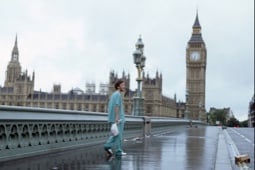
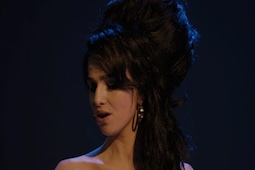
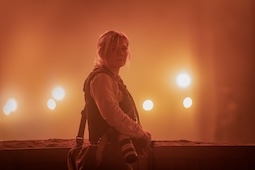
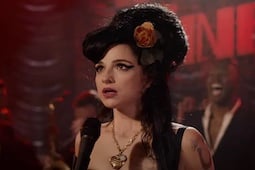
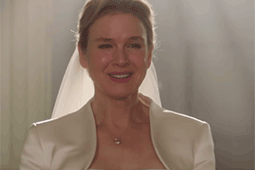
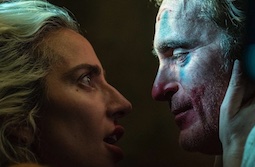
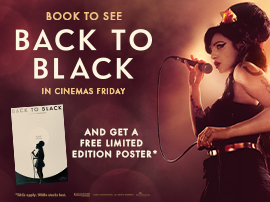

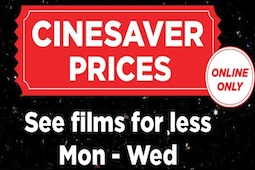
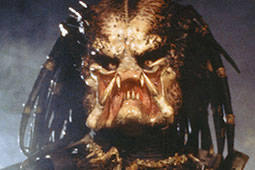

.jpg)
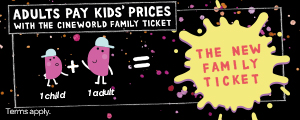

.jpg)
.png)






